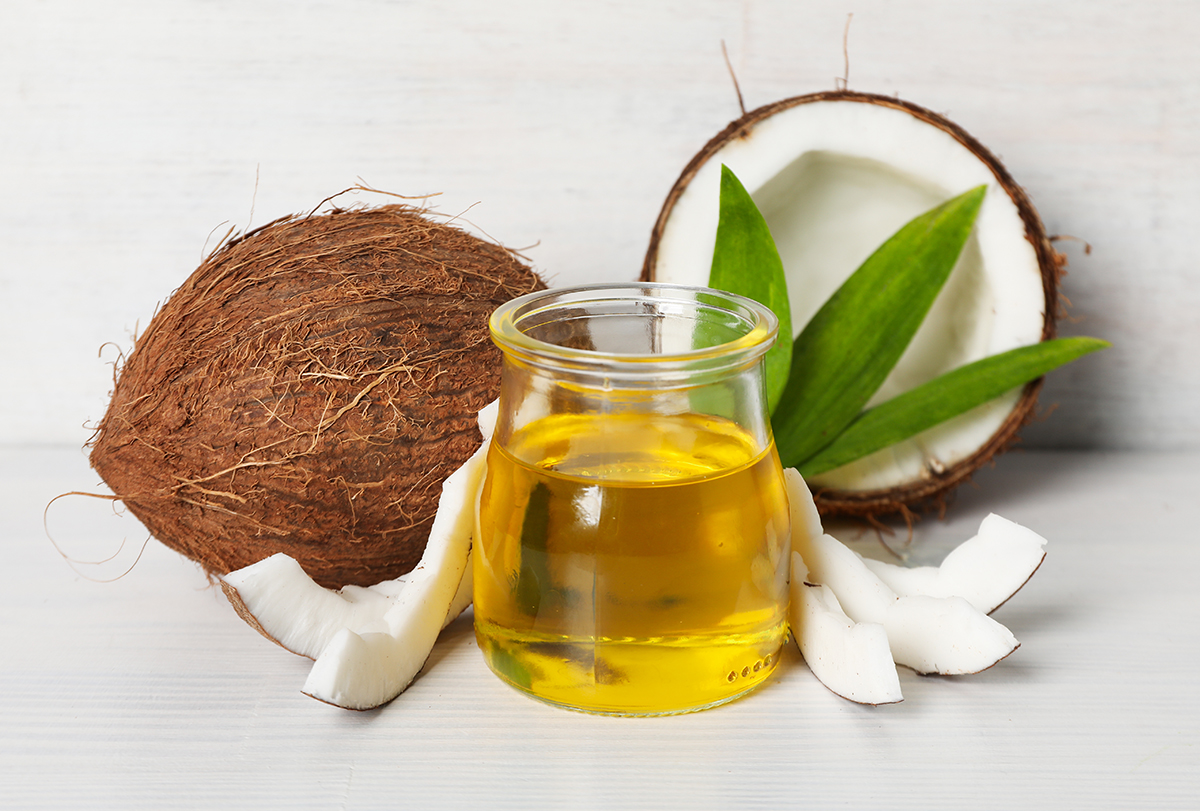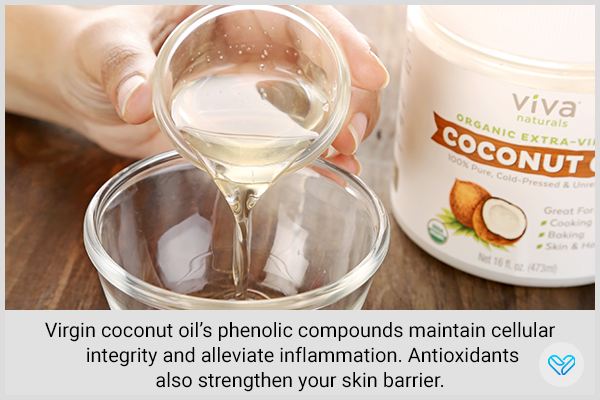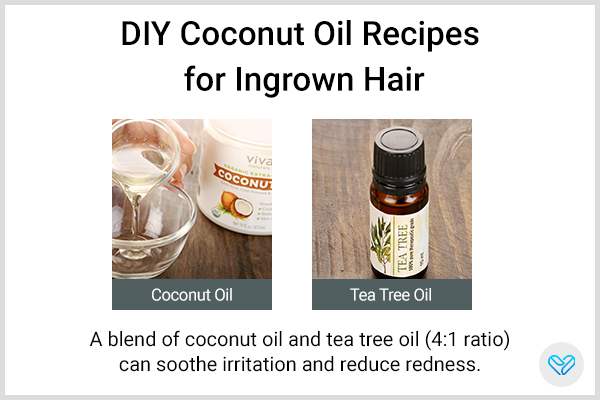In this article:
Ingrown hairs can be uncomfortable, causing redness and irritation as the hairs grow back into the skin.

Coconut oil, the most well-known oil in the world, with its anti-inflammatory properties, helps reduce skin redness and soothe the skin. It also moisturizes the skin.
Thus, this article will present how coconut oil can be a natural and efficient solution for ingrown hair problems.
What Makes Coconut Oil Good for Ingrown Hair?
Here are some reasons that make coconut oil good for ingrown hair.
It moisturizes skin
Virgin coconut oil has been used as a traditional moisturizer in tropical regions for centuries. Recent research has shed light on its skin-soothing properties too. (1)
This makes applying coconut oil a brilliant way to achieve smooth, supple skin that is protected from ingrown hairs.
It alleviates inflammation
Virgin coconut oil exhibits great anti-inflammatory action that reduces the release of skin inflammatory markers. In lab tests, Virgin coconut oil was also found to boost vital skin barrier proteins, such as involucrin (INV) and filaggrin (FLG). (1)
These qualities make virgin coconut oil a promising natural solution for ingrown hairs and a valuable addition to your skin care routine.
It has antioxidant properties

Virgin coconut oil is garnering attention for its exceptional qualities. One of them is that its antioxidant properties play pivotal roles in safeguarding your health.
These antioxidants, primarily phenolic compounds and medium-chain fatty acids, combat oxidative stress and free radicals.
Virgin coconut oil’s phenolic compounds maintain cellular integrity and alleviate inflammation. (2) Antioxidants also strengthen your skin barrier.
All of these effects lead to coconut oil’s potential use against ingrown hair.
Side Effects of Using Coconut Oil for Ingrown Hair
Although highly useful as a skin remedy, coconut oil may also cause some side effects:
- Coconut oil can clog pores.
- Coconut oil may trigger allergic reactions in some individuals.
- Coconut oil can make your skin feel greasier if you already have oily skin.
- The strong smell of coconut oil may not be for everyone.
- Coconut oil is not a fast solution for ingrown hairs and often does not work well for everyone.
How to Use Coconut Oil for Ingrown Hair?
To use coconut oil for ingrown hairs, warm a small amount and gently apply it to the affected area. Use this remedy daily to provide yourself some relief and keep your skin smooth.
DIY Coconut Oil Recipes for Ingrown Hair

A blend of coconut oil and tea tree oil (4:1 ratio) can soothe irritation and reduce redness. You can also mix coconut oil with brown sugar to create an exfoliating scrub, which helps prevent ingrown hairs by removing dead skin cells.
These DIY coconut oil recipes can be quite effective in keeping your skin supple and comfortable.
Most-Asked Questions
What are ingrown hairs?
Ingrown hairs occur when hair grows back into the skin, causing inflammation.
Which coconut oil is better, refined or unrefined?
Unrefined (virgin) coconut oil is preferred.
Can I use coconut oil after hair removal?
Yes, as long as your skin isn’t irritated.
What other remedies complement coconut oil?
Aloe vera, tea tree oil, and exfoliation can be used.
Final Word
Coconut oil can effectively address ingrown hairs due to its anti-inflammatory and moisturizing qualities. Applying a small amount and massaging it into the affected area can soothe the skin and promote a healthier complexion.
Regular exfoliation and proper hair removal techniques are key to preventing ingrown hairs.
- Was this article helpful?
- YES, THANKS!NOT REALLY


